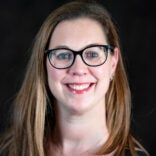We can’t kvell over Kamala Harris’ Jewish husband while we demonize interfaith marriage
Published August 14, 2020
BIRMINGHAM, Mich. (JTA) — Around the country, you hear the bubbies kvelling:
Did you know Kamala Harris’ husband is Jewish?
Did you know her step kids call her mamele?
ADVERTISEMENT
Did you see the video with her doing the cute impression of her Jewish mother-in-law?
Did you hear that he broke a glass at their wedding?
It is not surprising that the Jewish community is excited to be represented on the Biden-Harris ticket. Political leanings of the community aside, Kamala Harris’s husband, Doug Emhoff, is a member of the tribe, and two of Joe Biden’s children are married to someone who is Jewish.
But sadly, the Jewish community is a bit selective in celebrating interfaith marriage. If it brings us a Jewish second gentleman, we will cheer. But interfaith marriage is still taboo to many, and an Orthodox or Conservative rabbi would not have been allowed to preside over the Harris and Emhoff wedding.
American Jews want to celebrate the Jewish ties of any famous person while still discriminating against the relationships that tie these individuals to the Jewish community.
Don’t miss the voices that kept the Jewish world talking and thinking all week long.
Subscribe Now
One Jewish parent will likely get you placed on a list of Jewish celebrities (Zoe Kravitz, Michael Douglas, Maya Rudolph), but without awards lining your mantle, your Jewish lineage may be questioned or denied.
Kamala Harris and Doug Emhoff married in March 2014 at a courthouse ceremony officiated by her sister, Maya. Could they have been married in your synagogue, or join as members afterwards? If Doug’s children were younger, would Kamala be allowed on the bimah during a b’nai mitzvah? After both of them, God-willing, live to 120, could they be buried together in your local Jewish cemetery?
As a Jewish woman married to a Catholic man, I am often heartbroken as committed Jews who married outside the faith share their stories of rejection by the community. One Jewish mother, whose children are enrolled at our local day school, spoke to me about how angry it makes her that, if her husband was the Jewish parent instead of her, there would be no day school options available to her children.
ADVERTISEMENT
How many Jews of patrilineal descent are denied educational opportunities because of the gender of their Jewish parent? Other conversations about interfaith families are frequently about the difficulties of getting married — from outright refusals to officiate to interrogations on how the couple plans on keeping their home and raising their children.
While I cannot speak from experience, having never married another Jewish person, I cannot imagine that Jewish couples are subjected to such a gauntlet.
Thinking back to my own youth, I remember youth group discussions about whether intermarriage was doing what Hitler could not — and I fear that my own children would be exposed to similar programs sanctioned by Jewish institutions that would compare their own parents’ love to the Third Reich that murdered their ancestors. I hear community members discussing whether people “look” Jewish and cringe that this false notion could be used to make my blonde-haired blue-eyed children feel like their Jewish lineage is incomplete.
But more than the countless conversations I have, I am worried about the people that have just left. The couple who had a rabbi refuse to officiate at their wedding, and never walked into a synagogue again. I worry about the young professional who went to his first Jewish conference, heard a speaker say that marrying someone of another faith meant leaving the community, and decided to leave the organization. I worry about the college student considering a future in the rabbinate who learns that she will have to choose between marrying the person she wants and becoming a Rabbi in her denomination. The family who cannot find a mohel to perform a bris, and never ends up educating their child in Judaism.
The part that breaks my heart is when I meet a non-Jew who shares with me that their mom or dad was Jewish, but their parent was forced to choose between love and religion. This person is now lost to the community forever.
It is time for full inclusion of all interfaith families in the Jewish community, not just vice presidential nominees and celebrities. In 2013, 44% of all Jews were married to a non-Jew; 58% percent of those married since 2005, and the trend is seemingly on the rise.
Doug and Kamala are not a rare exception — they represent much of the American Jewish community today. We should make a greater effort to make families like them feel just as included and celebrated.

Alicia Chandler is a sociology graduate student at Wayne State University and a writer, speaker and consultant working on the issue of inclusion of intermarried couples and interfaith families in Jewish spaces. She is the founder of Multifaith Life, LLC, a consulting firm that exists to help Jewish institutions and the Jewish community adapt to the increase in interfaith families.














